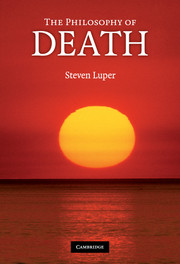1 - Introduction
Published online by Cambridge University Press: 05 June 2012
Summary
Suppose that in one hour you will utterly cease to exist. It would make no sense for you – the present you, the person reading these words – to make plans for the future you. Normally, when you look forward to your life to come, you imagine yourself carrying on with the plans you presently have for your future self, and you imagine your future self creating and launching new plans which you cannot yet know of, or acting spontaneously, perhaps simply enjoying the sun setting over the ocean. The prospect of these things to come prompts you to act now, to take some time out of your busy day to do things that will make things possible for your future self. Your future self is, after all, you. At the same time your future self is like a child whose life you are shaping now; you want your child to be happy, and to be someone of whom you can be proud, and who will think back to you fondly. Much of what you do is meaningful only if this child will thrive. Annihilation, ceasing to exist, would bring all of this planning and nurturing to an end. There would be nothing in life to look forward to – no pressing on with the things you presently take to be significant, no fresh undertakings, no future self to look after, no you at all.
It seems that if death means annihilation, then for most of us, most of the time, dying would be a very bad thing.
- Type
- Chapter
- Information
- The Philosophy of Death , pp. 3 - 10Publisher: Cambridge University PressPrint publication year: 2009



